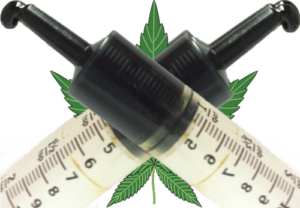History of the medicinal use of Marijuana (Cannabis)
Cannabis is a plant that has been used for centuries for its medicinal properties. It is known that in ancient civilizations, cannabis was used as a protector of neurons, as an anti-inflammatory agent, to fight fever, to treat glaucoma. Cannabis was even used for obstetric purposes. The use of Cannabis as a treatment to eliminate cancer has been promoted in recent years. Many studies have been carried out, some in favor and others against. The chemicals that make up cannabis definitely intervene in the improvement of symptoms as well as treatment.

Prostate cancer
Prostate cancer is one of the cancers with the highest incidence in men. Prostate cancer is a development of cancer cells in the prostate gland located between the colon and in front of the rectum. The benefits of cannabis in the treatment of prostate cancer, does not differ from the treatment of other types of cancer. Cannabis is directed towards the effects of chemotherapy and radiotherapy and towards the life cycle of cancer cells.
Chemical composition of the cannabis plant
Cannabis has around 280 cannabinoid and non-cannabinoid chemical compounds. Cannabinoids such as THC and CBD and non-cannabinoids such as Terpenoids and Flavonoids have had relevance in medical application. There is a difference between medicinal and recreational cannabis that is used to achieve a high state of excitement. The chemical composition of both are different, and therefore, the mixtures between THC, CBD and flavonoids are different. The human body contains some cannabinoid compounds. The endocannabinoid system (ESC) is the largest receptor in the body and is important in maintaining the health of the body. The cannabinoid receptor is found mainly in the brain and in various organs of the body. Cannabinoids affect the regular life cycle of cancer cells. Each type of cancer seems to respond differently to the effect of exogenous cannabinoids.

Using cannabis to combat the effects of cancer treatment
Cannabis can be used to fight cancer at two specific points:
1. Therapeutic assistant during illness and as palliative use, in the terminal stages
2. Destruction of Cancer Cells
Therapeutic assistant during the disease and as palliative use, in the terminal stages
The benefits of cannabis are the relief of pain present in some chemotherapy and radiation therapy treatments, and improvement of the frequent general discomfort says a group of medical marijuana doctors. The improvement of nausea and vomiting, stimulation of appetite, relieves symptoms of diarrhea caused by chemotherapy and radiotherapy and improves the depressive symptoms.
Pain Relief Analgesic
Pain is one of the common characteristics of patients of chemotherapies and radiotherapies. This occurs due to the inflammatory effects that chemical agents and radiation produce in the body. Pain in the bones, in the muscles, stomach pain, etc. Cancer can cause chronic pain, because the growth of tumors compress the surrounding nerves, causing pain in patients. The chemical properties of Cannabis alleviate the chronic inflammatory processes of cancer patients, managing to improve these painful conditions. It also positively influences reducing the inflammatory effects of the effects of chemotherapy and radiotherapy.
Antiemetic Relief of Nausea and vomiting
In patients treated with chemotherapy drugs, serotonin hypersecretion occurs in the cells found throughout the digestive organs. This condition causes nausea and vomiting in patients.The chemical components of cannabis contribute to block the effects of excess serotonin production. In this way, vomiting and nausea are reduced.

Stimulates appetite One of the effects of the lack of control of the serotonin emission in the body, product of the chemotherapy, is the loss of appetite or anorexia. One of the effects of this overabundance of serotonin in the body is that it intervenes in the central nervous system and this reduces the emission of hunger-producing hormones. If the brain does not receive the corresponding hormonal stimulation, the individual will not be hungry.The chemical components of Cannabis directly stimulate the brain instead of its natural hormone, producing the feeling of hunger.
Relieves symptoms of diarrhea
One of the outstanding characteristics in patients on Cancer treatments is diarrhea. It is a side effect of administering chemotherapy chemicals and radiation from radiation therapy. Diarrhea is also a symptom of the cancer patient. Mainly those of the Prostate, colon and pancreas. These diarrheas eliminate a large amount of fluid and hormones from the body. Cannabis chemicals help regulate bowel function and secretions. Due to its anti-inflammatory effect, it helps with colic symptoms. Colic is associated with the unusual behavior of the digestive system and the inflammatory processes of treatment.
Antidepressant
The clinical picture of cancer patients is painful, uncomfortable and greatly deteriorates health in a relatively short time. The effects of the treatment and the knowledge on the part of the patient that his life is at risk, leads to depressive symptoms. The same concern and health discomfort affect sleep. This increases stress and anxiety levels, in addition to affecting the immune system. The organism itself generates some cannabinoids which are important for regulating moods however, the substitution of these by cannabis use is under discussion by medical authorities however, cannabis chemicals participate in the regulatory process of mood.
Uses of cannabis to fight cancer cells
The effect of cannabis chemicals in cancer treatment has been studied for many years.There are ambivalent results, but there are many positive data supporting its use. Cannabis chemicals have been found to be directly involved in the life cycle and metabolic processes of cancer cells. Cannabis chemicals also have an effect of direct destruction of cancer cells. For all of the above, cannabis chemicals directly influence the reduction of cancer cell colonies.
Conclusion
The effects of cannabis are still under study, but there is much evidence that the chemicals contained in cannabis contribute on reducing the effects of the chemotherapy and radiotherapy processes. This improves the standard of living of patients in the process of recovery and therefore increases their chance of success. In parallel there is the direct incidence in the elimination of cancer cells. Surely the clinical procedures to implement the use of Cannabis chemicals will be clarified in the short term, but the studies so far give much confidence that they will be successful. Next Article Here.